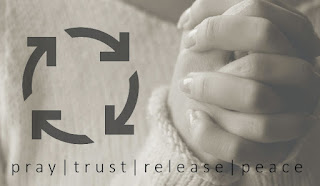You’ve heard of mansplaining, right?
Mansplaining is the phenomenon where a man overhears someone, usually a woman, explaining something and, upon detecting something that doesn’t seem quite right, feels compelled to say, “Actually…” followed by an impromptu lecture intended to straighten said woman out.
 It’s like the passive aggressive version of explaining, but with an undertone of misogyny, and usually accompanied by an eye roll or a pat on the head. And it always comes unbidden and unfettered by anything as pedestrian as context or empathy. Heaven forbid it be preceded by inquiry.
It’s like the passive aggressive version of explaining, but with an undertone of misogyny, and usually accompanied by an eye roll or a pat on the head. And it always comes unbidden and unfettered by anything as pedestrian as context or empathy. Heaven forbid it be preceded by inquiry.
No, the mansplain must fly directly and immediately to its target, because it’s an arrow of “truth” in a world full of half-truths and willful ignorance.
That’s mansplaining. And, while it may seem arrogant or narcissistic, it is our right - nay, our moral obligation - as men, to impart our wisdom, willy-nilly, like Johnny Appleseed, whether or not said wisdom is wanted or needed. Huzzah!
Or not.
Mansplaining is a curse, but unlike most curses, it’s real. If you’re a man, you’ve done it. If you’re a woman, you’ve suffered through it. And right now, I want to officially apologize to everyone I’ve ever mansplained to, and everyone that I will, undoubtedly, mansplain to in the future. I’m sorry. No, really. I am.
But there is another thing that is similar, but not exactly the same, and does not, therefore, fall under the same curse. And that is something I call Godsplaining.
Godsplaining might sound like mansplaining, but it’s not the same. Because Peter told us we have to Godsplain. Remember he said…
Always be prepared to give an answer to everyone…(1 Peter 3:15)
So, we have a biblical mandate to Godsplain. If we hear God-talk that sounds a little off, it’s our right - nay, our moral obligation - to impart our wisdom - especially on the internet.
Right?
No need for context or empathy. We MUST give an answer. Peter said so.
Or did he?
Actually…(Oh, no, there I go, Godsplaining. Bear with me.)
Actually, the verse says, “Always be prepared to give an answer to everyone who asks you to give the reason for the hope that you have.”
You’re supposed to give an answer IF they ask. You don't give an answer when there's been no question. And then it says…
“But do this with gentleness and respect.”
Keep your eye rolls to yourself. Seriously. And perhaps consider that you might not be as smart as you think. At least that's what Solomon would have suggested. He said, "The way of fools seems right to the fools, but the wise listen to advice." (Proverbs 12:15)
If your first inclination is to start Godsplaining, maybe take a cue from the wisest guy who ever lived, and try listening more than you talk?
"But it's for their own good," you say. "It would be worse to leave them in their error."
Writing that just made me a little ill. Sure, I like to think I've got a handle on some stuff. But, as soon as I start thinking I've got it all figured out, and that my mission is to straighten out those who don't, I start becoming useless to the purposes of God. Because, speaking for God is not about imparting knowledge; it's about expressing His extravagant love through my own love for others.
And if you ever lose sight of this, just remember the words of Paul, who said, "knowledge puffs up, while love builds up." (1 Corintians 8:1b)
He doesn't say that it's bad to collect knowledge. Learning and growing in our knowledge of God and the world should be our lifelong pursuit. But letting that knowledge define us - holding it over others - allowing it to make us feel superior - is the polar opposite of love.
Quit Godsplaining, and start Godlistening. Start hearing others and, when they ask you why you seem so loving, so open, so humble, then you can tell them the reason for the hope that you have.
Because if you've actually managed to shut up long enough to become the person who can listen to others before imparting your fool's wisdom, if you can be humble enough to admit that you might be wrong, if you can make room for differences of opinion, then maybe, just maybe, someone might want to hear your explanation.
That's what Peter was talking about. Go ahead. Do it. Peter said so.


















